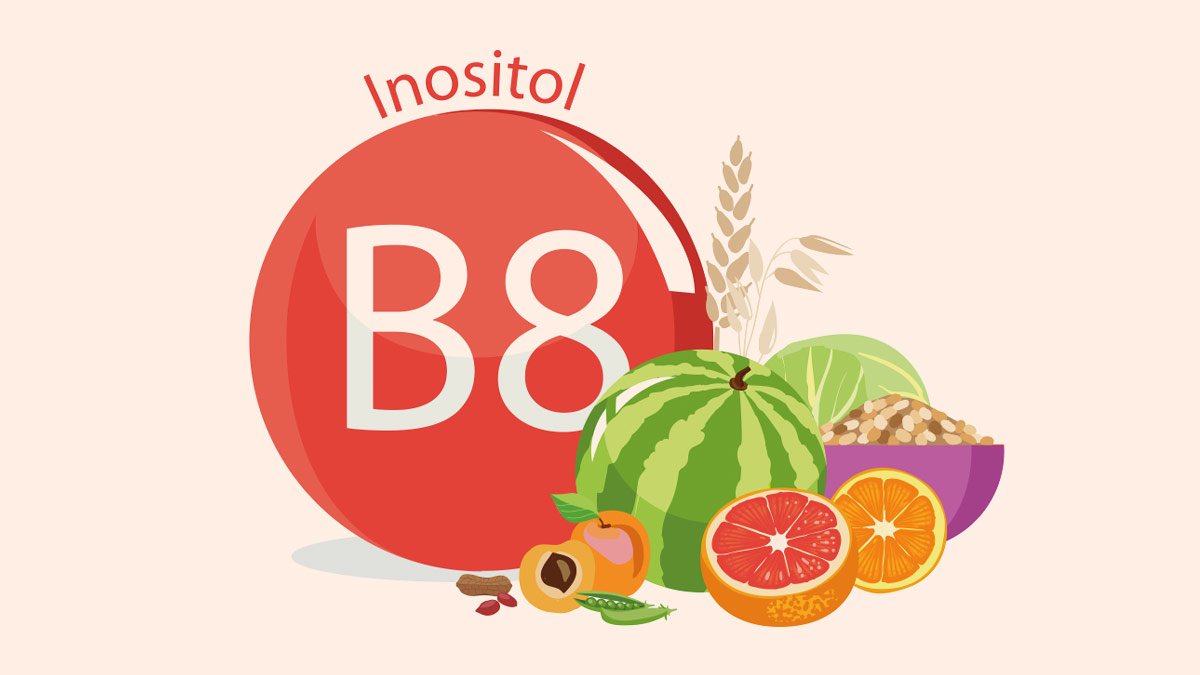
Inositol belongs to the vitamin B family and is often referred to as vitamin B8, although it is not officially classified as a vitamin. It is rather a type of sugar with several important functions. It influences the action of insulin and may aid mental health and metabolic conditions, including diabetes.
Table of Content:-
To understand vividly about inositol and why it is important for our body, OnlyMyHealth team interacted with Ramya B, Dietician, Cloudnine group of hospitals, Chennai.
Defining inositol, Ramya said, “Inositol is a type of sugar alcohol that is found in human body tissues and is also present in certain foods. It plays important roles in various biological processes and is considered a vital nutrient for overall health.”
Adding further, Ramya said, “Inositol exists in several forms, with myo-inositol being the most common and biologically active form in humans. Other forms include D-chiro-inositol and scyllo-inositol, each with specific functions and distribution in the body.” Let’s explore how this form of sugar is important for our body.

Importance of Inositol
According to WebMD, inositol is essential for several different cellular processes. It acts as a messenger for your cells and helps with functions such as regulating insulin.
1. Cell Signaling and Communication
Inositol serves as an important component in cellular signaling pathways. “It helps facilitate communication between cells, particularly in response to various hormones and neurotransmitters,” Ramya said.
Also read: Diabetes Management: Tips To Eat Carbs Without Raising Blood Sugar Levels
2. Nervous System Health
Inositol plays a role in maintaining the health of the nervous system. It is involved in the structure of cell membranes in neurons and helps regulate neurotransmitter activity, which is important for regulating mood and cognitive function.

3. Regulation of Insulin
“Inositol, particularly myo-inositol and D-chiro-inositol, has been studied for its role in insulin signaling and glucose metabolism. Inositol has great potential in improving insulin sensitivity and helps in managing diabetes,” explained Ramya.
4. Lipid Metabolism
As per Ramya, inositol is involved in lipid metabolism, including the breakdown and utilization of fats in the body. It can help regulate cholesterol levels and support cardiovascular health.
Also read: How Often Should You Check Your Blood Sugar Level If You Have Diabetes
5. Fertility and Reproductive Health
When it comes to maintaining and managing reproductive health, inositol has shown promising support, particularly in women with polycystic ovary syndrome (PCOS). Ramya says, it may help regulate menstrual cycles, improve ovulatory function, and support fertility.
6. Mood Regulation
Studies have shown that inositol has a potential role in mood disorders such as depression and anxiety. “It is believed to modulate neurotransmitter activity in the brain, which can influence mood and emotional well-being,” Ramya explained.

Food Sources and Supplementation
Inositol is naturally found in various foods, including fruits, beans, grains, and nuts. However, the body can also synthesize inositol from glucose. In cases where dietary intake may be insufficient or for specific health conditions, inositol supplements are available to support overall health and specific therapeutic goals.
Conclusion
In summary, inositol is an essential nutrient that plays diverse roles in the body, including cell signaling, nervous system function, insulin regulation, lipid metabolism, and reproductive health. Adequate intake of inositol through diet or supplementation is important for maintaining overall health and supporting specific physiological functions. However, as with any supplement, it's important to consult with a healthcare provider before starting inositol supplementation, especially for therapeutic purposes.
Also watch this video
How we keep this article up to date:
We work with experts and keep a close eye on the latest in health and wellness. Whenever there is a new research or helpful information, we update our articles with accurate and useful advice.
Current Version